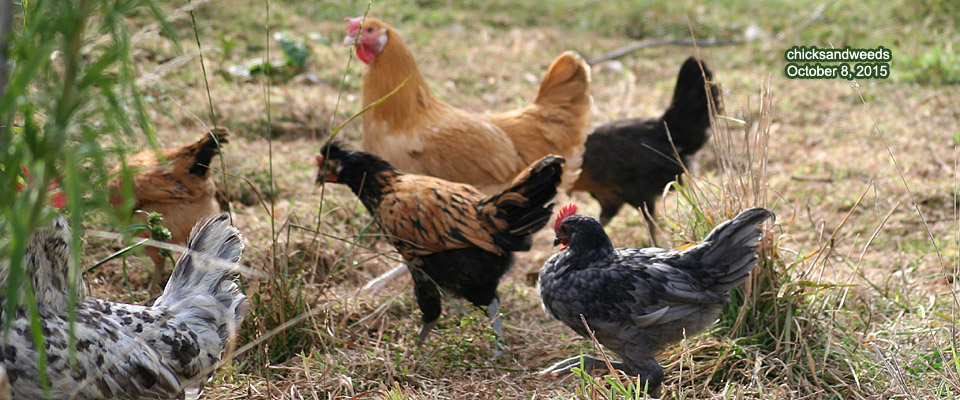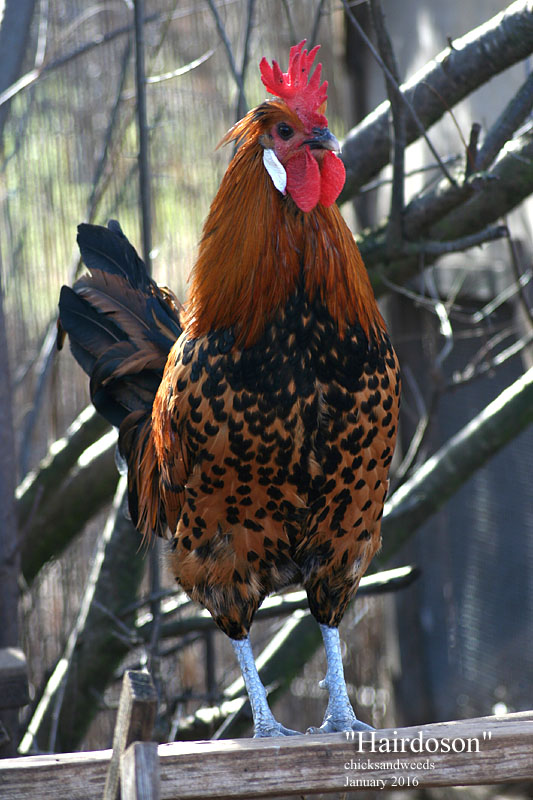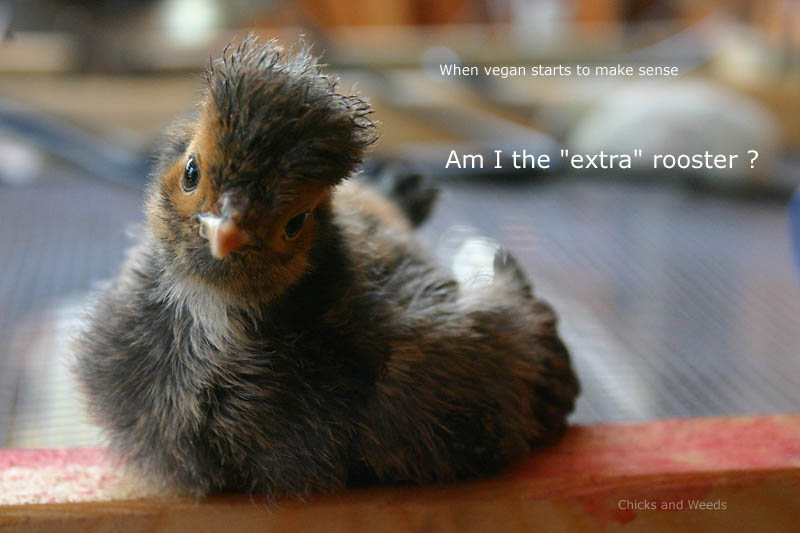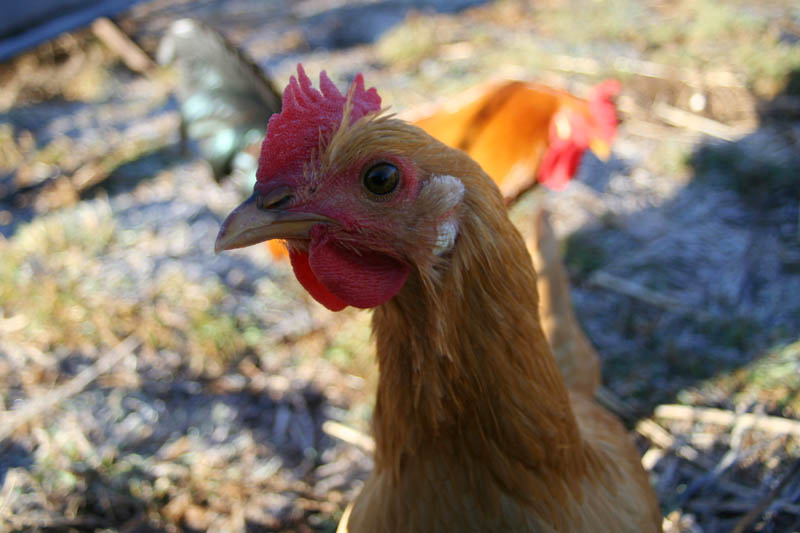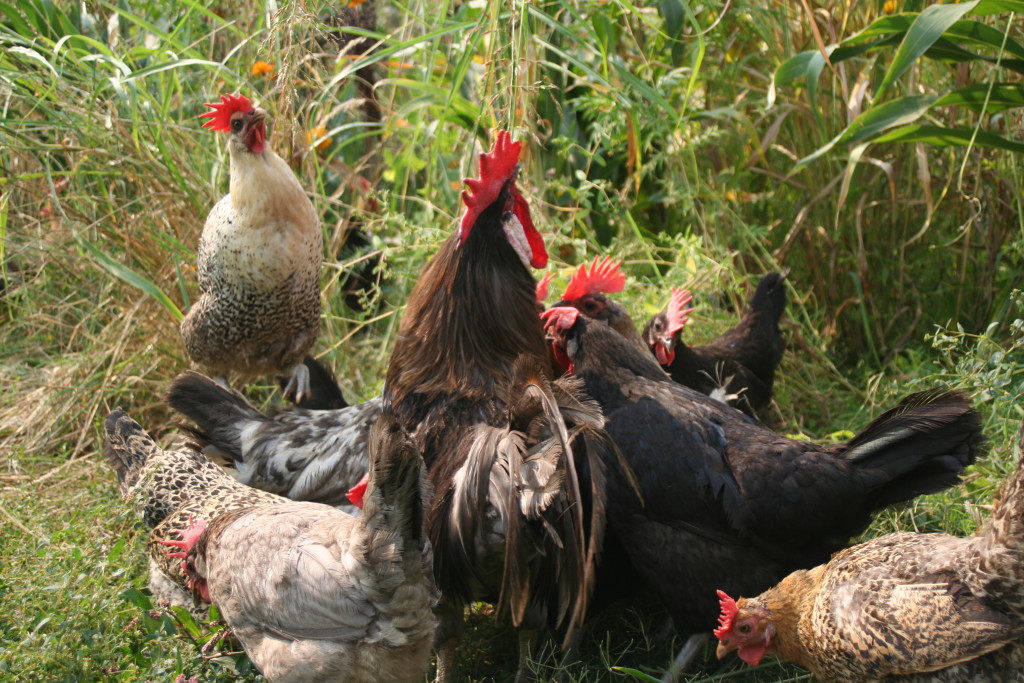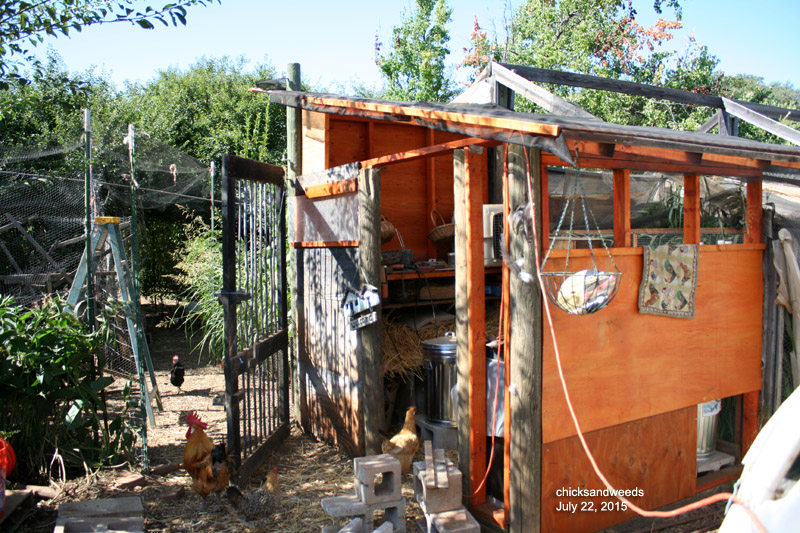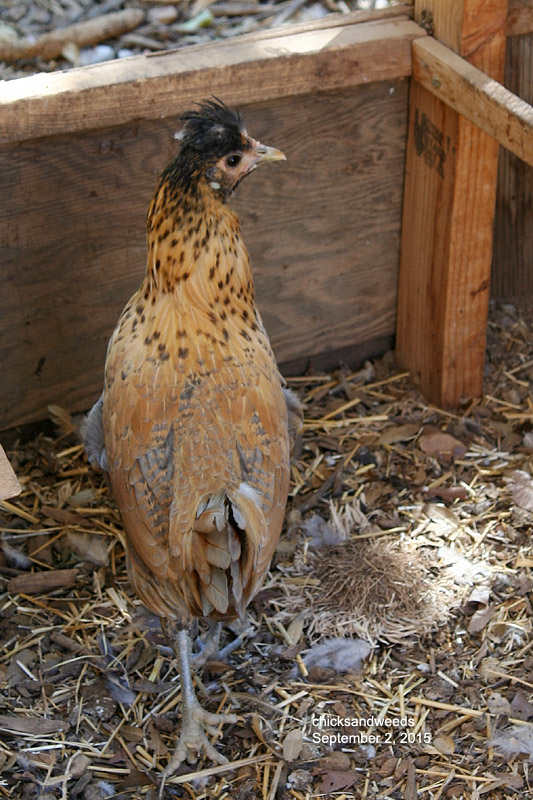The only symptom: slowing down – now what?
Look at this sweet hen sitting in front. I love this girl, even though she always objects loudly when I pick her up. She is one of Hairdo’s…Heirdodottir, who was a golden Polish.
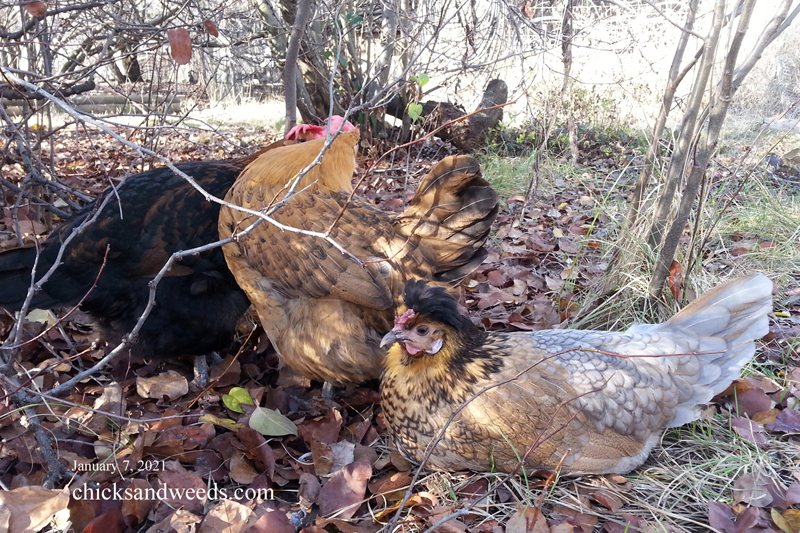
She started acting a little slower a couple of week ago, nothing else. No limping, irritability, excessive preening, respiratory symptoms, dirty vent or difficulty swallowing. She will be 6 years old this spring, in other words, has reached slightly more than the average free range backyard chicken age. She looks great, still eating but not as vigorous, but, I know she is slowing down just by the way she moves and acts, even though she is still going out with the flock. So what, if anything, is there to do?
A word on one of the best tools in flock management: observation. Time spent being with the flock and noticing what is going on, how they move and relate is the only way I know of to accomplish this. How else will you know if something, or someone, is acting “off”. Also, knowing what normal breathing looks like, what a normal belly feels like and what foot pads would feel and look like will help you to notice when they are not within the normal range. Knowing what clean and healthy feathers look like, and those infested with Norther fowl mites, a clean vent area and one with lice. It really helps to know what is normal or healthy when you look them over.
There are some (most) chicken ailments you won’t be able to do much about. Some others though, if you don’t act early, you might lose the bird.
Sometimes something like this, just this slowing down, is temporary while they are fighting who knows what virus, of which there are many. Sometimes it is the beginning of the end of life process. For some, it takes a few more weeks, others a few months till their time has come.
What I check for in a bird with no other symptoms other than that it is slowing down are: lice, mites, and, especially if you notice any abnormality in swallowing, check the inside of their mouth for those yellow canker plaques. Why those? Because I have lost 2 birds to canker which I treated too late.
I check for lice and mites because people say the birds can get so sick they get anemic. This I cannot verify. The only birds that have had issues with lice and mites on them are those who are too sick to clean themselves, and when a bird is that slow, then I check and treat them, because once they stop dust bathing and preening, eventually lice and/or mites will follow.
Anyway, those are the things I know of to check in a bird with otherwise no symptoms. For all the illnesses caused by the various viruses, all you can do is supportive care, depending on symptoms. I no longer treat for worms as I consider some worms normal for chickens and they don’t live in crowded conditions and free range.
I keep my birds with the flock as long as they are safe. It stresses them out not to be.
What if they had lice, mites or canker, then what do I do?
I treat lice and mites on birds with: Elector PSP. That is it. So far I never used any other lice treatment on birds. It is expensive, but I only make up small amounts and it does last a long time (as in: several years)
Canker is caused by Trichomonas, a flagellate microorganism which they can catch out in the wild where there are other birds, especially pigeons, who spread them through drinking water of wet food.. Canker can kill your bird because of airway obstruction or obstruction of the esophagus, but it can be treated if you catch it before the obstructive masses begin to form.
How do I treat canker: Isolate the bird (the only infectious reason that I so far have had to isolate for to protect the others). Medications I use: Berimax and Thyme extract alternating into the beak, once in the morning, once at night. If lesions resolve, that is it, otherwise add one of the Trichomonas treatments for birds (metronidazole type) if it is any more than a small area or seems to spread. Look at the bird medication or pigeon sites to find it. Apple cider vinegar in the affected bird’s drinking water. I also use apple cider vinegar in the drinking water for 3 days for the rest of the flock. Trichomonas can’t survive in acidic water.

